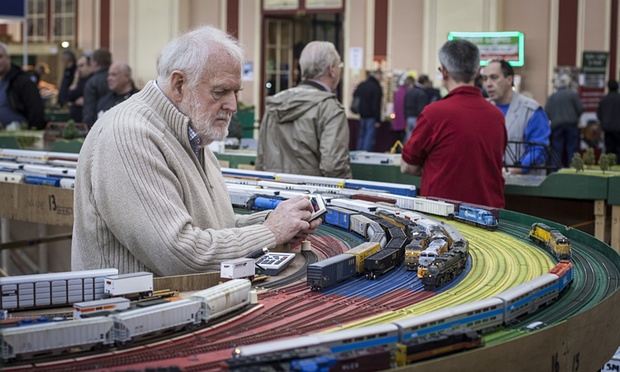It’s a bleak Monday in January, and you have spent half the morning trying to come up with plausible excuses to get out of doing any work. But I have some good news: the key to a happy life – and I know you were wondering about that – is, apparently, spending more time on your hobbies.
New research published by the Society for Personality and Social Psychology (and not the Institute of the Completely Obvious, as you may have expected), says that valuing your time more than the pursuit of money leads to feelings of greater wellbeing. And by valuing your time, they mean spending it wisely on hobbies, exercising or being with your family.
The researchers even invented two characters, “Tina” and “Maggie”, and asked people who they preferred – money-grubbing sociopath Maggie, who would rather work more hours and make more money, or workshy hippy Tina who wanted to work fewer hours and make less cash. The option of working less and making more money was strangely absent, although that is of course the obvious answer, as evidenced by the hordes of people who bought lottery tickets this weekend.
My main issue with the research is the idea of adults having hobbies. What are hobbies anyway? Pastimes, suggests my boyfriend, which makes them sound marginally less awful. But is eating biscuits while watching Keeping Up with the Kardashians a pastime? Because if so, I am very serious about it, and presumably I am very happy too, although I wouldn’t know it, because I have given up my favourite pastime (drinking) for January – and perhaps for ever if the government’s draconian new guidelines are to be believed.
After all what is the point of being an adult if you can’t gleefully cast off hobbies? Most of them not only smack of Victorian ideals of self-improvement, but are basically activities adults made you do when you were a child so they could get you out of the way for a few hours. If you have been a Brownie or a Scout you will know what I am talking about. Here’s what happened when I was a Brownie: I was awarded a badge for collecting scented erasers (a 1980s hobby if ever there was one) and I was made to do Brown Owl’s housework, under the guise of gaining another badge.
There are very few hobbies that are acceptable as an adult. None involve mindfulness colouring-in and most are a way of life: drinking, eating, listening to music, perhaps a bit of yoga. Of course, there are ways to pass off these everyday activities off as “hobbies”, mainly by making them as complicated and time-consuming as possible. Cooking is brilliant for this. Simply choose an extremely complex recipe with many obscure ingredients – anything by Yotam Ottolenghi is perfect, and I can’t recommend Donna Hay’s beef rendang enough – not only do you have to find fresh turmeric, galangal and kaffir lime leaves, it also takes three hours to cook. Bingo!
As world Scrabble champion, I think new words are obvs lolz
Craig Beevers
Read more
Pets are also useful. Dogs – walks, obviously. Cats – well, if stroking cats isn’t a hobby then I don’t know what the world is coming to. Pets with ailments are fantastically time-consuming. My own cat has inflammatory bowel disease, it turns out. I can’t recommend it, but it certainly necessitates spending several hundred hours away from my desk and at the vets.
As with so many things, there is an age dimension. Older people questioned for the study were more likely to say they valued their time compared with younger people. This can only be good news – pastimes that your friends previously mocked you start becoming acceptable as you age – birdwatching, for example. This seems to be fine after the age of 40. Ditto gardening.
So there you have it. Faff around doing anything you like, really, and you may even fool yourself into being happier. After all, isn’t the study basically saying that the more time spent away from work the better? Common sense, really.
Fuente: www.theguardian.com
